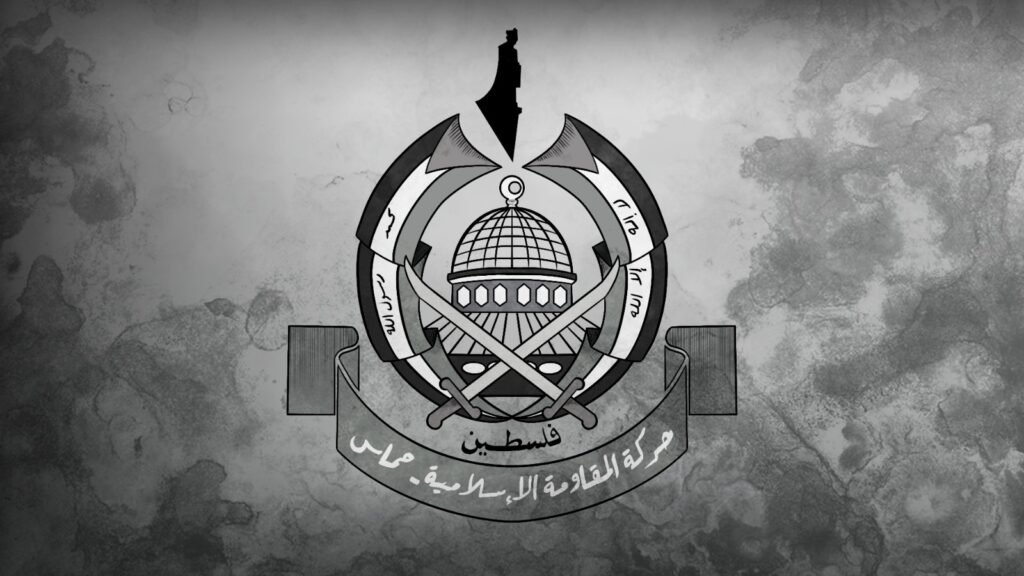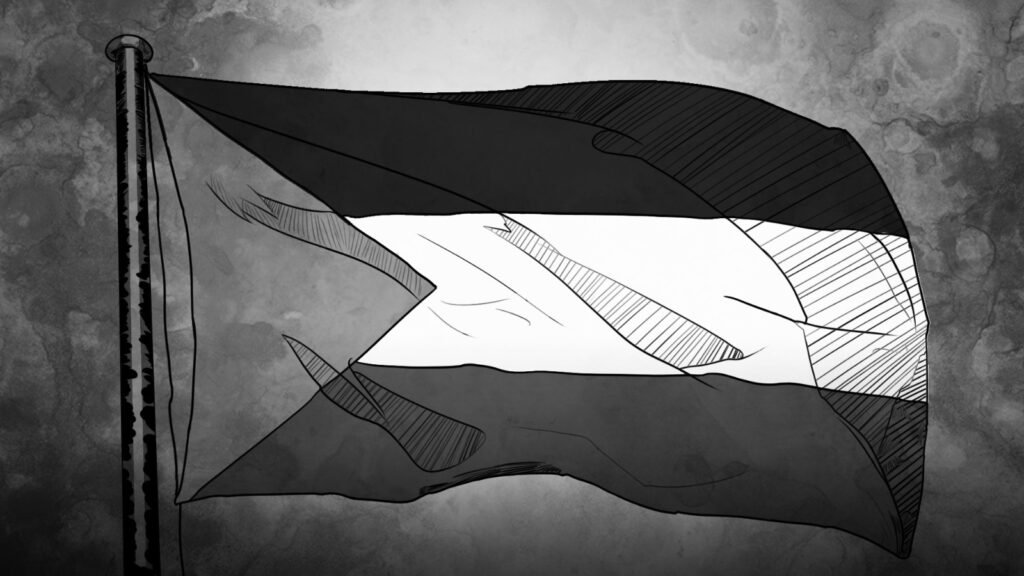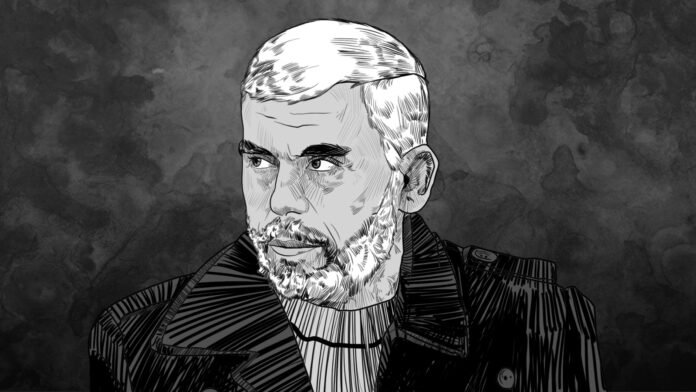In a development reflecting the accelerating internal dynamics of Hamas, Yahya Sinwar was elected as the head of the movement’s Political Bureau on Tuesday, August 6, 2024. This position is the highest organizational role within Hamas, second only to the General Shura Council. Sinwar’s election followed the death of Ismail Haniyeh, the former head of the Political Bureau, who was killed in an explosion in Tehran on July 31 of the same year, an act for which Israel did not claim responsibility.
Haniyeh played a crucial role in balancing the military wing and calls for reconciliation within Hamas. This was not the first time Hamas elected a new leader; after the assassination of its founder, Sheikh Ahmed Yassin, in 2004, a meeting was held at his home in Gaza, where his successor, Abdel Aziz al-Rantissi, was elected. Al-Rantissi met the same fate as his predecessor within less than a month.
The appointment of Yahya Sinwar as the leader of Hamas and head of its Political Bureau following the assassination of Ismail Haniyeh came as a surprise to many. Sinwar, whom Israel has vowed to pursue, is considered the mastermind behind the October 7, 2023, attack on the Gaza border, further escalating tensions.
Yahya Sinwar was born in Khan Yunis in 1962. He played a key role in establishing Hamas’s first security apparatus in 1983, known as “Aman al-Da’wa.” His activities later expanded, leading to the founding of the “Majd” security apparatus in 1986, which focused on tracking down collaborators with the Israeli occupation in Gaza.
In an article on the Al-Zaytouna Center for Studies and Consultations website, Dr. Mohsen Mohammed Saleh mentions that “the Jihad and Da’wa Organization ‘Majd’ was formed as a military force under the security apparatus, led by Yahya Sinwar, who was joined by Ruhi Mushtaha. Their mission was to combat ‘corruption and the corrupt,’ and their duties later expanded to include fighting collaborators and other activities.”
The fourth part of the Palestinian Elite series details Yahya Sinwar’s struggles during his resistance journey. He was first detained by the Israeli occupation in 1982 for four months under administrative detention. He was arrested again shortly after his release, receiving a six-month sentence and a third time in 1988, leading to a life sentence of four terms, of which he served 22 years, mostly in isolation. He was released in the 2011 Shalit prisoner exchange deal, became Hamas’s political bureau chief in Gaza in 2017, and was elected leader of the movement in 2024.

The Hamas movement is known for its cohesive and secretive organizational structure. Since its founding in Gaza in 1987 during the First Intifada, Hamas has combined political activities with military operations. The movement participated in the 2006 Palestinian legislative elections and established offices in Arab countries to manage external relations. Hamas ultimately gained control of the Gaza Strip following armed conflicts with the Fatah movement.
Militarily, Hamas and Israel have been engaged in violent conflicts since the late 1980s. This period saw an escalation in hostilities, including a series of attacks and military operations carried out by Hamas against Israeli targets, leading to increased violence and tension between the two sides.
Since then, clashes between Hamas and Israel have continued, leading to several rounds of conflict. The most significant of these confrontations were the three major wars in Gaza: the 2008-2009 war, the 2012 war, and the 2014 war. These conflicts involved intense military operations on both sides and resulted in significant human and material losses.
The escalation on October 7, 2023, triggered a new war in Gaza, marked as one of the bloodiest escalations in the past decade. Israel launched intense military strikes on Gaza, accompanied by widespread violations of international law. This led the International Court of Justice to demand that Israel end the occupation and cease its aggression, marking an unprecedented decision.
In Hamas’s struggle against the oppression of occupation, it was inevitable that they would face internal forms of tyranny as well. A national liberation movement cannot call for independence without applying those principles, as one cannot give what one does not possess.
At the core of Hamas’s decision-making process lies the General Shura Council, which consists of 50 members representing various regions, including Gaza, the West Bank, prisons, and abroad. This structure ensures fair representation of diverse voices within the movement.
One of the duties of the General Shura Council is to elect members of the Political Bureau, which manages strategic policies and foreign relations. The Bureau, in turn, elects the head of the Political Bureau and their deputy, as well as the leaders of the three regions: Gaza, the West Bank, and abroad. According to the movement’s structure, no leader or official is allowed to remain in their position for more than two consecutive terms, each lasting four years.
Hamas has not ignored the debate between scholars regarding Shura and democracy. As an Islamic movement, Dr. Yusuf Rizqa notes in the second chapter of “The Political Vision of Hamas” from the book “The Islamic Resistance Movement Hamas: Studies in Thought and Experience” that Hamas adopts democratic mechanisms in practice, but prefers the term “Shura” over “democracy” in its documents. This is because “Shura” aligns with its Islamic vision, while “democracy” often carries negative connotations linked to Western philosophy and practices.
Tawfiq al-Shawi, in his book Fiqh al-Shura wal-Istishara (1992), argues that “democracy is a Western form of Islamic Shura.”
Regarding the mandatory nature of Shura, Khaled Hroub states in his book Hamas: Thought and Political Practice In 1996, Sheikh Ahmed Yassin, from his prison, told the leadership in 1993 that “Shura (consultation) is obligatory for us. No individual or group of individuals may make decisions that determine the future of our mission alone. Any decision made by the majority is binding on everyone.”
The Political Bureau of Hamas follows the General Shura Council as the highest leadership body within the movement. The Bureau is responsible for formulating strategic policies, managing foreign relations, and negotiating with states and other Palestinian factions. It was established in 1989, largely due to the efforts of Mousa Abu Marzook, following a series of Israeli arrests of Hamas leaders, including Sheikh Ahmed Yassin, who was not released until 1997.
It is observed that “the practical application of Hamas’s institutions” confirms “the commitment of its leaders and cadres to the mandatory nature of Shura, as the General Shura Council has rejected several decisions made by the Political Bureau, which represents the executive authority within the movement.”
Abu Marzouk served as the head of Hamas’s Political Bureau from 1992 to 1996, followed by Khaled Meshaal from 1996 to 2017. Ismail Haniyeh then took over in 2017. During the 2021 elections, 16 members were appointed to the Political Bureau, with Haniyeh continuing as leader and Saleh al-Arouri as his deputy, while Yahya Sinwar remained the head in Gaza. In 2024, both Saleh al-Arouri in Beirut and Ismail Haniyeh in Tehran were killed in attacks believed to be carried out by Israel, although no official comment was made.
Regarding Hamas’s stance on the principle of the separation of powers, Rezqa states that the movement has “two positions: one at the societal level, where it advocates for the separation of powers to prevent tyranny and the domination of the executive authority over other branches, while not rejecting the idea of cooperation between them.”
The relationship between Hamas’s Political Bureau and its military wing remains unclear, especially regarding military decisions. According to a report by the Washington Institute for Near East Policy, critical details of the October 7 attack carried out by Hamas were reportedly kept hidden from the organization’s leaders abroad.

This is followed by the military wing, the Izz al-Din al-Qassam Brigades, known for its significant independence in making field decisions and executing operations. The movement’s military activity began in the mid-1980s, before its official political establishment.
During that period, the military activities were known as the “Palestinian Mujahideen.” Salah Shehadeh, the founder and first leader of the military wing, contributed to the establishment of Hamas by participating in a meeting held at Sheikh Ahmed Yassin’s home in Gaza before the movement’s first declaration was issued.
In 1992, the military wing adopted the name “Izz al-Din al-Qassam Brigades,” with Salah Shehadeh as its leader until his assassination in 2002. In the following years, Israel targeted several key leaders, including Salah al-Jabari, Jamal Sa’b, and Yahya Ayyash. At the start of Israel’s 2023 war on Gaza, Ayman Nofal, a prominent commander, was killed. Israel claimed to have targeted the Brigades’ leader, Mohammed Deif, in a 2024 attack, but Hamas has not confirmed his death. Israel also announced the death of Deif’s deputy, Marwan Issa, without official confirmation from Hamas.
In addition to its military wings, Hamas also has specialized committees and bodies in media, advocacy, and social services, which enhance the organization’s ability to operate effectively across different sectors. Moreover, the election of Yahya Sinwar as the head of the Political Bureau strengthens the leadership of the new generation within Hamas in Gaza.
Hamas received congratulations from various Palestinian factions on Yahya Sinwar’s election as head of the Political Bureau. Even representatives of Fatah, despite their long-standing differences with Hamas, found the decision logical.
Jibril Rajoub, Secretary of the Fatah Central Committee, considered Sinwar’s appointment as a “logical and expected response to the assassination of martyr Ismail Haniyeh,” noting that this change is part of Hamas’s response to recent events and its effort to enhance its ability to address challenges.
On the other hand, Israeli reactions from both political and military levels were more severe. Israeli Foreign Minister Yisrael Katz called for the swift elimination of Yahya Sinwar, considering his appointment as Ismail Haniyeh’s successor an additional reason to eliminate him and erase Hamas from the map. Katz wrote on the platform X: “Sinwar’s appointment as the head of Hamas is an additional motive for his swift elimination.”
Israeli Chief of Staff Herzi Halevi stated that the change in Hamas leadership will not affect the Israeli army’s strategy to track down and target Sinwar. Halevi emphasized, “Changing the leader’s name does not prevent us from continuing to pursue him and carrying out operations against Hamas targets.”
There is no doubt that the authoritarian regimes in the Arab world, which claim to support the rights of the Palestinian people, do not want them to be liberated from the occupier through a democratic national resistance, as freedom is highly contagious to the rest of the region’s peoples.




